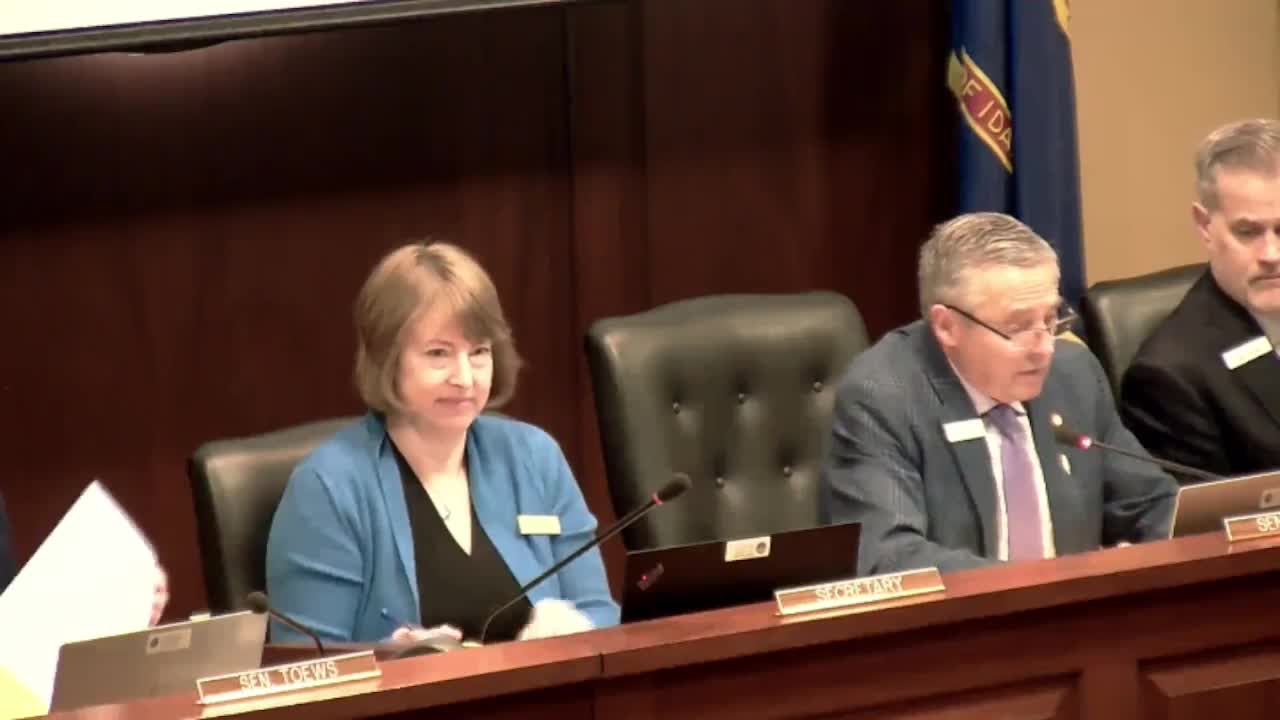Committee sends Senate Bill 1080, aimed at banning predatory "claim sharks," to fourteenth order for amendments
Get AI-powered insights, summaries, and transcripts
Subscribe
Summary
Senate Bill 1080, which would restrict unaccredited private claim consultants from charging for initial VA benefits claims, drew split testimony from veterans service groups and private vendors; the committee voted to send the bill to the fourteenth order for possible amendments.
Senate Bill 1080, sponsored in the committee by Senator Kelly Anton, would make it illegal in Idaho for unaccredited private entities to charge fees for preparing initial veterans benefits claims, an effort proponents said is aimed at protecting veterans from “claim sharks.”
Kelsey Zack, a legal extern from the University of Idaho College of Law presenting the bill, cited federal rules in 38 CFR 14.629 that govern accreditation and said the VA’s Office of General Counsel accredits three types of representatives: VSO representatives recommended by recognized VSOs, attorneys in good standing, and claims agents who pass VA testing. “This legislation will prevent claim sharks from exploiting Idaho military veterans who are attempting to file a claim for their veterans benefits,” Zack said.
Supporters included William “Bill” Taylor, founder and CEO of Veterans Guardian VA Claims Consulting, who said his firm employs veterans and operates “in compliance with federal law” and suggested tailored consumer protections rather than a broad prohibition. Daniel Murphy, state adjutant for the Disabled American Veterans, told the committee SB 1080 “is a great piece of legislation” and described widespread predatory advertising and large up‑front fees in other jurisdictions.
Private-sector witnesses including Lisa Calkas, chief marketing officer and vice president of public affairs for Veteran Benefits Guide, and Ashley Berry of the National Association for Veteran Rights testified in opposition to the bill as written. Calkas said the bill would “severely and unfairly limit choices veterans have in seeking assistance,” and Berry warned the bill could push more veterans into long waits for government services given limited VSO capacity; Berry said Idaho has “only 40 VSO representatives to assist more than 25,000 veterans.”
After extended discussion and testimony for and against the measure, Senator Ruckdy moved, and Senator Adams seconded, that SB 1080 be sent to the fourteenth order for possible amendments to allow additional work on changes. The motion carried by voice vote. Senators and witnesses identified potential amendment points including fee caps, disclosure requirements, privacy protections and preserving the right to paid representation on appeals after an initial decision.
The committee record shows the members intend further work to reconcile consumer protections with veterans’ access to paid assistance; the bill will be considered again in the fourteenth order where amendments may be drafted.
